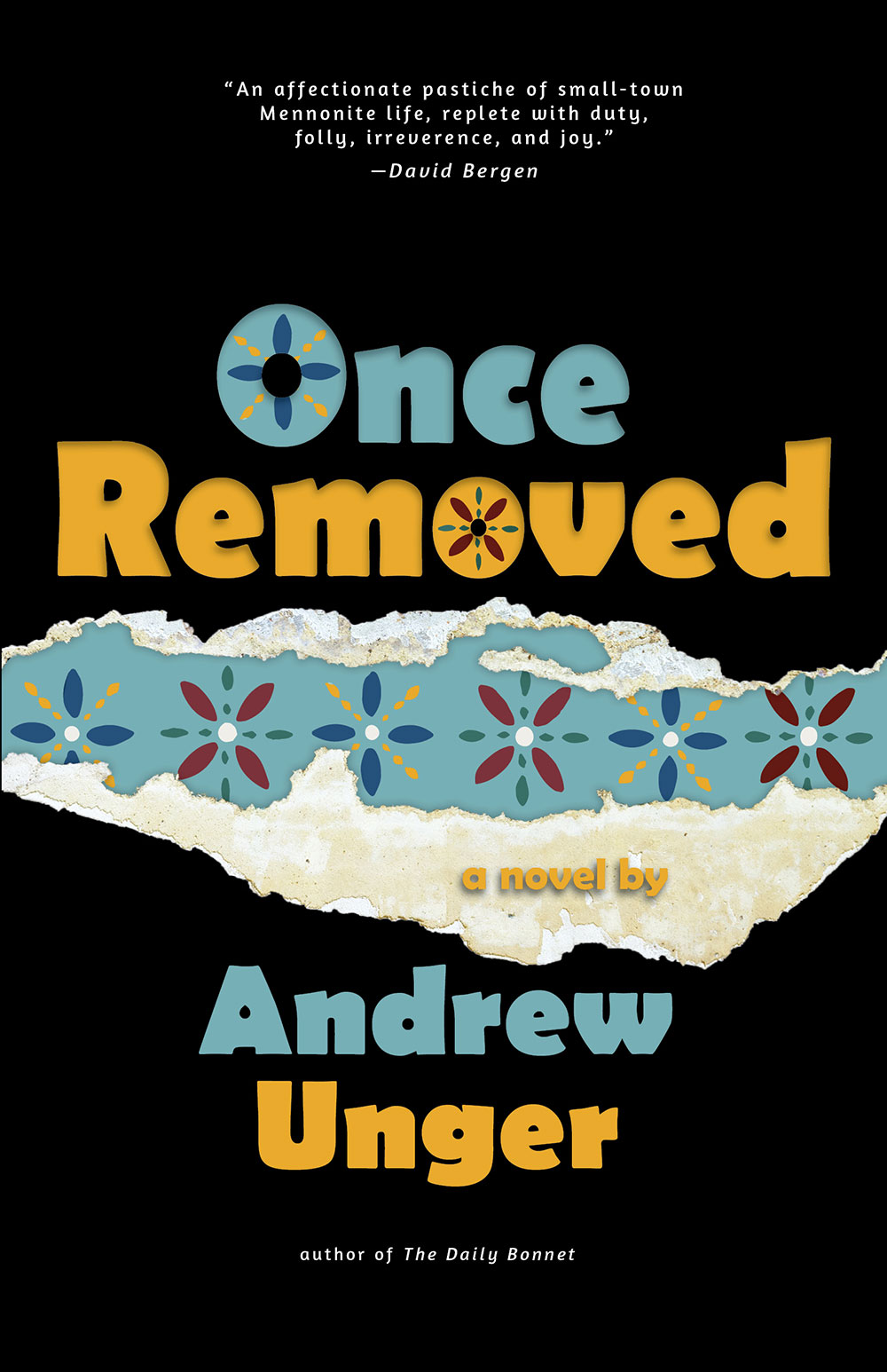
Timothy Heppner is a frustrated ghostwriter struggling to make ends meet in Edenfeld, a small Mennonite community bulldozing its way towards modernity—if it’s old, it has to go!
A member of the Preservation Society but desperate to keep his job with the mayor’s Parks and “Wreck” department, Timothy finds himself in an awkward position when he is hired to write an updated version of the town’s history book. Fuelled by warring loyalties, the threat of personal bankruptcy, and a good deal of fried bologna, Timothy must find his own voice to tell the one story that could make—or break—him.
Honest and laugh-out-loud funny, Once Removed explores the real costs of “progress” in this new Canadian classic.
- Winner of the 2021 Eileen McTavish Sykes Award for Best First Book
- Shortlisted for the Margaret McWilliams Award - Popular History
An affectionate pastiche of small-town Mennonite life, replete with duty, folly, irreverence, and joy.
—David Bergen
Hilarious as Schitt's Creek, sinister as Hitchcock, Once Removed gives us Timothy Heppner, the quintessential non-resistant Mennonite, in a comic tour de force that exposes the friction between progress and preservation, ethnic pride and ethnic embarrassment, commerce and heritage, truth and boosterism, and the coercion and acquiescence that is as real to the big city as to a small town.
-Armin Wiebe, Grandmother Laughing
1. Discuss the possible meaning(s) behind the title Once Removed.
2. Describe Timothy as a character. What are his strengths/weaknesses in light of the various challenges he faces throughout the book? What motivates him? What is his relationship with authority?
3. Describe what Edenfeld was like before BLT Wiens became mayor. What is it like now under BLT’s reign?
4. What does “progress” look like in your community? Does it come at the expense of the community’s history or is there a balance between the new and old? Is a “balance” even necessary? Why or why not?
5. Are there are specific buildings in your community that you’d like the see preserved in some way, and why?
6. How important/necessary do you think “progress” and “growth” are for rural communities?
7. Timothy’s ghostwriting projects are primarily those that record family histories. How important do you think it is to have this kind of information in writing? What other forms do family histories take? What form do they take in your own family?
8. References to food and baking abound throughout the novel. What role does food play in the culture of Edenfeld?
9. Randall has an obsession with Russian culture based on his understanding of the Mennonite diaspora of the 19th and early 20th century. Why do you think that is? What drives people to possess a fixation on our “roots”?
10. What function do the rumours about Elsie Dyck play in the psyches of Edenfeld’s residents?
11. Describe the novel’s attitude towards religion.
12. How does the use of satire throughout the novel shape your impression of Edenfeld, its residents, and the cultural standards?
13. On page 52-53, Timothy remarks: “Moving to the city is so twentieth century... Who would I be in the city? Just another hayseed from the country trying to seek fame and fortune on Henderson Highway.” Do you think it’s better to be a big fish in a little pond, or a little fish in a big pond?
- 14. Timothy and Katie seem to enjoy a relatively harmonious marriage. What is it about their marriage that makes it “work”? What do you think are the keys to a successful marriage
You may also be interested in these titles
 Turnstone Press Ltd.
Turnstone Press Ltd.
206-100 Arthur Street
Winnipeg, Manitoba, Canada
R3B 1H3
Quicklinks
Newsletter
Thanks to our Funders
![]()
![]()
![]()
![]()


